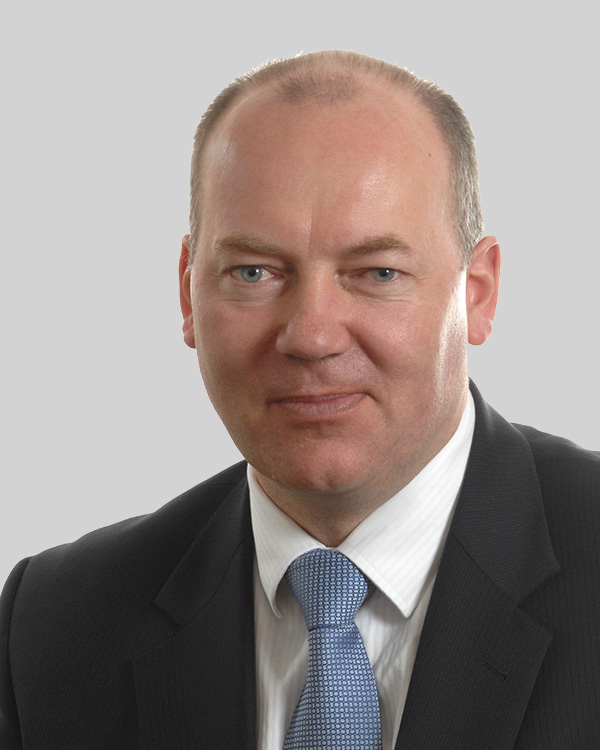The symposium on criminalisation of the seafarer was hosted in the plenary of the International Maritime Organisation on the 16th June 2025 from 1000 until 1730.
The symposium on the criminalisation of seafarers was introduced by the moderator and followed by a interview by Reuters of the secretary generals of IMO, Arsenio Dominguez, and ILO who outlined in general the issues and the tools available to assist in this area. The SG IMO stated that although the IMO will not be involved in individual cases, but, through its instruments and guidelines will support seafarers in their place of work and in the specific area of criminalisation. The main effort of the IMO will be through its FAL subcommittee. The SG of the IMO reiterated his commitment to seafarers and stated they were the key to safe and environmentally sustainable maritime transport globally.
The IMO have produced draft guidelines, in co-operation with the International Chamber of Shipping, ICS) the International Transport Workers’ Federation (ITF) and the International Labour Organisation (ILO), in November 2024, outlining how seafarers accused of crimes should be treated entitled “Fair treatment of seafarers detained in connection of alleged crimes.” It was primarily these guidelines that the symposium was centered around.
The symposium was split into three distinct parts:
- examples of criminalisation of seafarers,
- the current legislation, guidelines and insurers views, and
- what to do next.
The Seafarers and Company View
Two examples of criminalisation of seafarers were presented.
An interview with the relief maser of the MT Reia
- MT Reia criminalisation experience, the vessel was initially detained for 30 days then the majority of the crew were released but the senior officers were detained by the Iranians for nearly 4 years whilst transiting the straits of Hormuz 13 July 2019.
- On ocean passage the tanker was intercepted by the IRNG and detained for the illegal transportation of oil. A fine of $1.2 million was imposed, it was at this stage that the management company withdrew all support and severed ties with the ship. 49 months later the maser, c/e and relief master were released, a fee of $12,000 for legal fees was required to be paid.
MV Pacific Basin Detention
- MV Pacific Basin detention for 19 kg of cocaine in Honduras, in the cargo of grain the vessel was flagged in Panama but de-flagged during the incident. The Chinese Master was incarnated for 2 years before his release. This was in part facilitated by the establishment of diplomatic relations between China and Honduras.
- Following the incident the owner has set up a security desk to enable a more robust and secure port entry in high-risk ports. Likewise the owners have taken a huge number of additional security measures to protect the ships and crews from the impact of smuggling onboard their ships.
When asked what more can be done in criminalisation of seafarers, the answer was that the industry should speak with a single voice, the IMO ILO guidelines should be more than guidelines, probably mandatory. The industry should work as one, information should be shared and data likewise should be shared and should be freely available for use. Finally unified reporting and unified action should be utilised.
The Ports and Terminal’s View
Further presentations were given by the ports and terminals organisation IAPH and world shipping council. Both organisations comment that only 2 to 3 percent of containers were inspected or scanned or inspect. It was stated that it is not cost effective or time practical to scan or inspect every container, the inference being “let the seafarer take the wrap for any illicit goods as its far to difficult and time consuming for us to be bothered with”!!. What is achievable and useful is intelligence led targeted actions.
The X Press pearl, incident, fire on container ship following leaking container which had been Sri Lanka requested to be landed ashore in two different ports. The Master is still held in the country. The incident occurred in 2021 May.
A video from the Master of the X press pearl was shown to the delegates
Legal P&I and flag state views
The afternoon session opened with the presentation of The Guidelines on the fair treatment of seafarers, being presented by the head of legal for the IMO secretariat, outlining the background of the guidelines of fair treatment and the component parts that make up the full guideline document. The discussion of the origin of many parts of the guidelines, existing law or legislation was noted.
This was followed by the member state Belgium, explaining on how they have implemented the fair treatment of seafarers in practice. Belgium has one sentence in its marine code which says “these guidelines shall be taken into account.” Belgium has worked in decriminalisation of seafarers, removing small prison sentences and introducing small fines and shifting the focus upon the company and responsibility rather than the individual seafarer.
SKUD gave the view of the P&I clubs in relation to the fair treatment of seafarers, segregating the assistance being provided before, [risk prevention and preparation] during [immediate response & support] and after an incident [recovery and reform]. P&I’s main role is where a seafarer has acted in “Good Faith” and cases will be assessed on a “case by case basis.” The expression “on a case by case basis” was used extensively during the SKUD presentation.
UN office on organised crime and border control [UNODC] provided a brief update on their role and specifically the global maritime crime brane which has provided assistance in 4 cases to date. A common factor was in all four cases there was a lack of due process being displayed by the local /national authorities We, the UNODC, seek to raise awareness of the guidelines and promote the guidelines with IMO member states.
It was explained that the guidelines reflect existing legislation on the human treatment of seafarers much of which is already enshrined within national law.
France asked what insurance cover was available for the seafarer, and the reply from SKUD was very much centered around each event will be considered on a “case by case” basis. Tanzania asked if there was the possibility of capacity building for developing states in the implementation of these guidelines.
Conclusion
The final session of the day was a summary of improvements led by the SG of the IMO in conjunction with SG ILO standards department, Guy Patton and S Cotton. The establishment of a common database of criminalisation events was suggested as well as the sharing of good practice, as demonstrated by Belgium.
The SG IMO stated that he does not want to move into the blame game but rather the preventative area of management of criminalisation of the seafarer. Likewise the impact upon recruitment and retention of the criminalisation of seafarers is an area he is deeply concerned with and the industry as a whole need to address the issue.
A request from the floor was for the IMO and OLO to work closer with the UNOCD and the SG of the IMO stated that they already do
The meeting concluded at 1730 and was followed by a reception.

Capt. Kuba Szymanski
Capt. Kuba Szymanski
Captain Kuba Szymanski is the Secretary General for InterManager, the international trade association for the ship and crew management sector.
He began his sea career in 1985. Graduating from the Maritime University of Szczecin with a Master’s Degree, he became a deck officer with Dorchester Maritime Limited Isle of Man where he sailed gas/chemical/product tankers, reaching his first command as a Master in 1999. He continues to maintain his Captain’s Licence.
In order to support his managerial skills, he attended Lloyds Academy and obtained a Certificate in Ship Superintendence, before gaining an MBA at the International Business School, Isle of Man and John Moores University (JMU) Liverpool.
In his roles ashore, he worked as a Marine Superintendent, HSEQ Manager, Fleet Manager and General Manager. He was appointed Secretary General of InterManager in January 2010.
Through his role with InterManager, Capt Szymanski has participated in many industry-wide projects, including the production of international shipping industry Key Performance Indicators (KPI), the Save Our Seafarers campaign, and the Martha Project which focussed on seafarer fatigue at sea. He currently chairs the Human Element Industry Group (HEIG) Enclosed Space Committee. During the Covid-19 pandemic Capt Szymanski represented InterManager on a number of key maritime panels, supporting the health and well-being of seafarers around the world and helping to ensure business continuity for the global supply chain.
In addition to being a member of the Maritime Professional Council of the UK, Capt Szymanski is a fellow of the Nautical Institute and a member of its Executive Board. In 2011 he joined the TK Foundation, which supports non-profit maritime and youth programs, and he currently chairs its HR and Renumeration Committee.
Capt Szymanski is a familiar face on the international maritime conference circuit and also lectures on ship management at the International Business School, Isle of Man. In July 2018 he was awarded an Honorary Doctorate by Solent Southampton University in recognition of his contribution to the maritime industry.
In April 2022 Capt Szymanski took up the additional role of Chair of the Board of the 200-year-old Seafarers Hospital Society (SHS), the UK’s oldest maritime charity. SHS provides a range of health and welfare services to UK-based seafarers and their dependants.
In his leisure time, Kuba is a keen yachtsman and races sails his Beneteau First 40.7 competitively around Europe, mostly double or single handed. He is married with a son who is also a seafarer.

